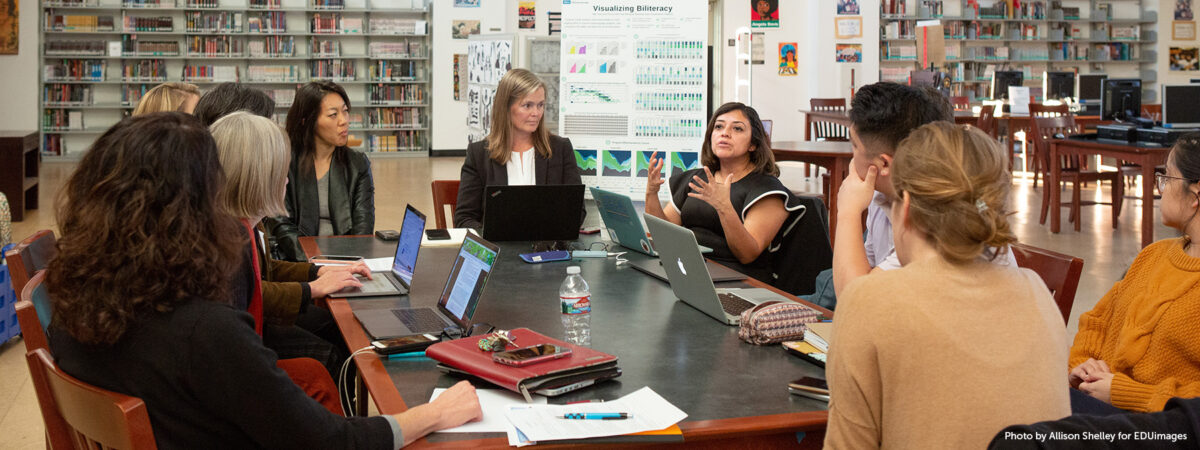In education, a professional learning network, or PLN, refers to a personalized network of people and resources that educators use to support their professional development and growth. It encompasses a wide range of connections including fellow educators, mentors, experts, professional organizations, online communities, social media platforms, conferences, workshops, and educational resources.
The purpose of a PLN is to facilitate continuous learning and collaboration within the field. People leverage their PLNs to stay updated on the latest trends, research, and best practices in teaching, leadership, and learning. They engage in discussions, share resources, seek advice, and collaborate on projects with peers who have similar interests or expertise.
As an educator, building a professional learning network (PLN) is essential for continuous growth, collaboration, and staying updated with practices in education. However, with so many platforms and avenues for people to connect, it can sometimes be overwhelming to get started. How can you begin, and how can you continue to stay engaged? Here are five tips to help you build and nurture your PLN.
- Begin your journey by creating your “elevator sentence.” An “elevator sentence” is similar to an “elevator pitch”—this is a short, one to two sentence bit of information about who you are as a professional. An elevator sentence lets people know who you are and what you are interested in, and can help you navigate which PLNs may be good for you to join and participate in. Here are a few examples:
- Customer-focused education industry leader with a passion for using technology to innovate business, learning, and pedagogy.
- Educational technology professional with a passion for using technology to innovate systems and productivity.
- Cybersecurity leader interested in learning more about K-12 and higher education school systems.
- Join social media platforms that fit with your career goals and interests.There are several communities out there, so don’t just limit yourself to one—see which platforms and conversations pique your interest. For example, you may want to participate in education-related discussions on social media platforms like X, LinkedIn, or Facebook. Follow educators, administrators, and educational organizations, and engage in relevant conversations using hashtags like #EdChat, #EduTwitter, or #TeacherLife. There are also community specific hashtags, like #mtbos (for math educators) and #EdLeadership (for school leaders). When you do that, you’ll find that others in the professional learning network are sharing resources and ideas, and asking questions so that they can learn from others’ experiences.
- Make it a point to make engaging with your PLN part of your routine. When you’re part of a professional learning network, engagement is important! Make it part of your routine to interact with your PLN. I post anywhere between two to three times per week on LinkedIn with articles and information, and between two to three times per day on X (which is a more fast-paced platform). Additionally, I typically allocate 30 minutes at the beginning of the day for looking at and commenting on posts within my PLN, and then an additional 30 minutes at the end of the day for the same.
- Participate in virtual or in-person communities and forums whenever possible. On many websites such as LinkedIn, X, and Reddit, communities exist for educators, school leaders, and district leaders to connect and collaborate with each other. These communities often post questions for open response and communication. If you are an educator, consider joining online communities and forums dedicated to educators, such as Reddit’s r/Teachers and r/EdTech or education-focused platforms like Edutopia’s community forums. These platforms allow you to connect with educators worldwide, share best practices, seek advice, and collaborate on projects.
- Attend conferences and workshops that interest you. Attend local, national, and international conferences, workshops, and seminars related to your field of expertise or interest. Some of my personal favorites include IDEAcon (in Schaumburg, Illinois), Future of Educational Technology Conference (FETC), and the International Society for Technology in Education (ISTE)—they are all based around my interests in technology in education. These events provide excellent opportunities to network with fellow educators, exchange ideas, and gain insights into innovative teaching practices and research findings.
Remember that building a professional learning network is an ongoing process. Be proactive, open-minded, and willing to contribute to the collective knowledge of the education community. By actively engaging with diverse perspectives and experiences, you’ll continuously enhance your professional growth.
Want to know more about expanding your professional learning network? Find more resources here:
Try expanding your professional learning network for yourself to see how it helps your personal and professional development.
